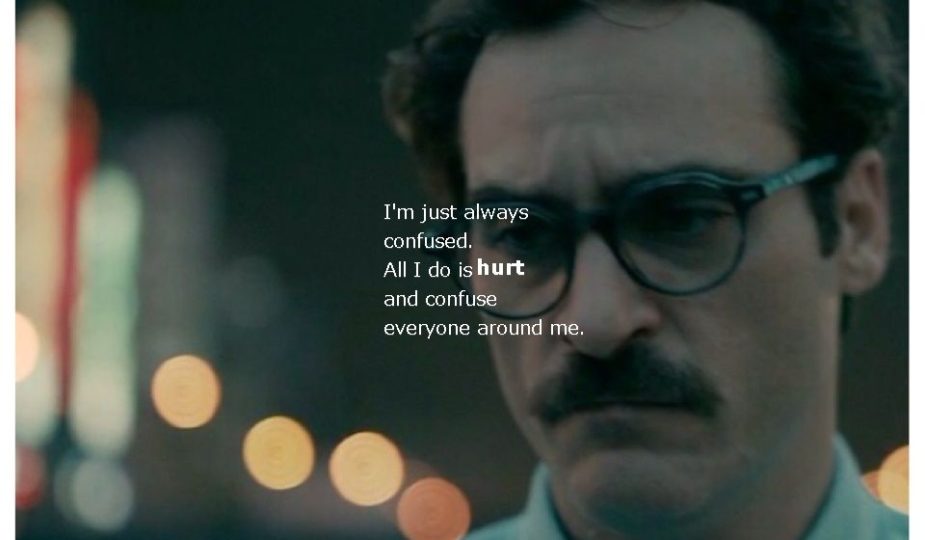
Her (2013)
We currently live in deeply sad times in which we are overly subjected to electronic devices. “Her” is a monumental film by the interesting director Spike Jonze, where he tells us the story of Theodore, a man who falls in love with a computer voice.
Theodore works for a company that hires professional writers who compose letters for people who cannot write them by their own nature. He is in a constant state of melancholy, a word that the poet Victor Hugo defined as: “the joy of being sad.” We observe Theodore’s constant obsession for reliving memories of his extinct relationship with his wife, Catherine, who is about to divorce him. At the same time, Theodore seems to take the blame that this relationship has come to an end.
Later the social retraction and the restlessness are present in the life of Theodore, his vortex of instability makes him fall in the attempt to buy a new operating system that promises to offer a fantastic emotional company never before experienced, and Theodore gives the name “Samantha” to said system.
Theodore is absolutely fascinated with the level of realism with which Samantha communicates with him. Each day he enriches the tone of the conversations with her more, making them more substantial and transcendent, and when he is least expecting it, he is already arguing about existential issues and sharing deeply personal experiences with her, that determined his life. The situation reaches unsuspected territories and extremes and Theodore begins to fall in love with Samantha. This causes a change of gigantic proportions, since he manages to resume his social life and his work performance is driven very positively.
But it does not take long for confusion to take over, and Theodore begins to doubt about how true and healthy a relationship with a computer can be.
“Her” masterfully discerns the complexity and consequences of failed relationships, in addition to making us question whether it is possible to (virtually) fall in love with someone who does not exist in the physical world, and of course, addresses the alignment that technology progressively is causing in humans.
by Octavio Carbajal Gonzalez
